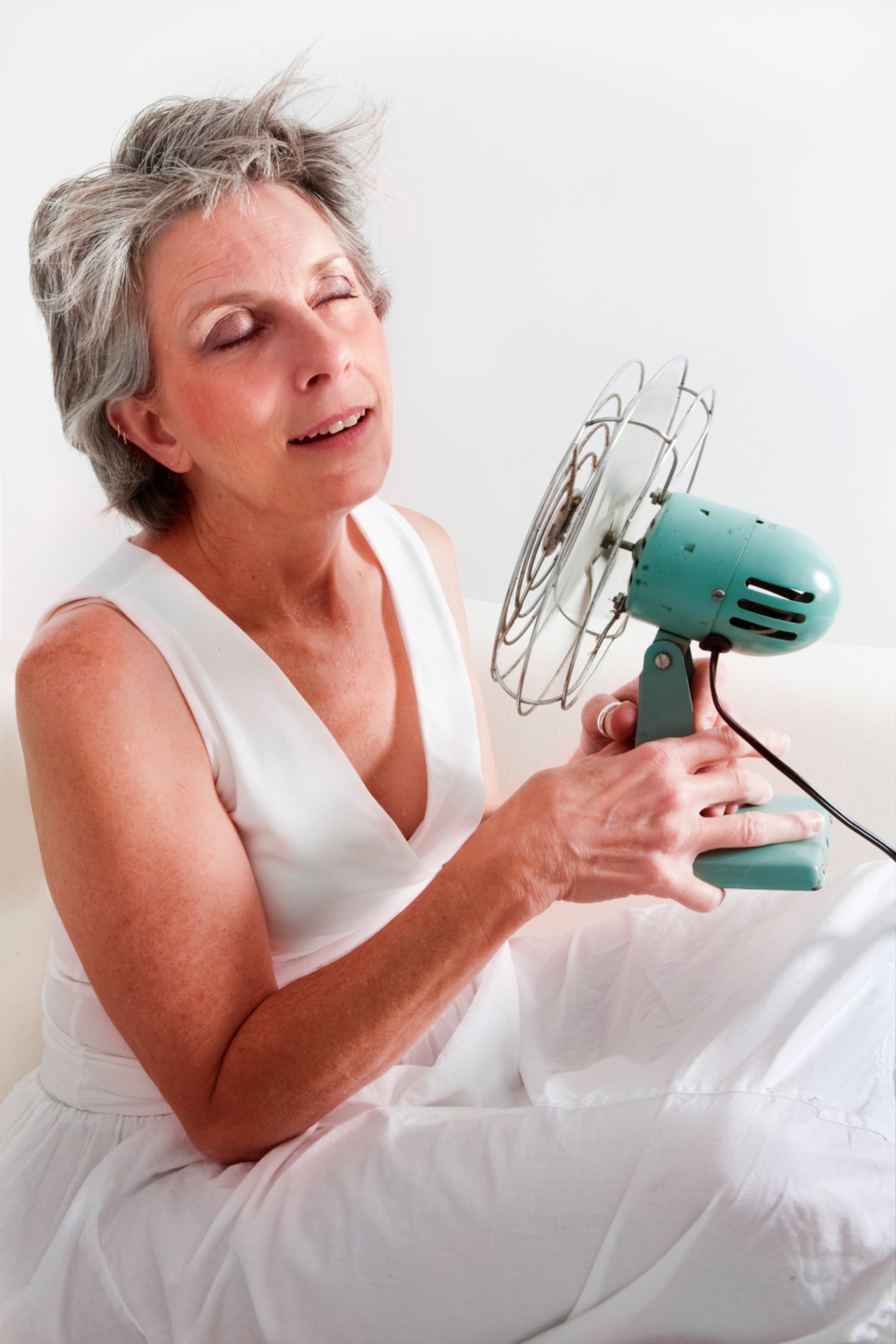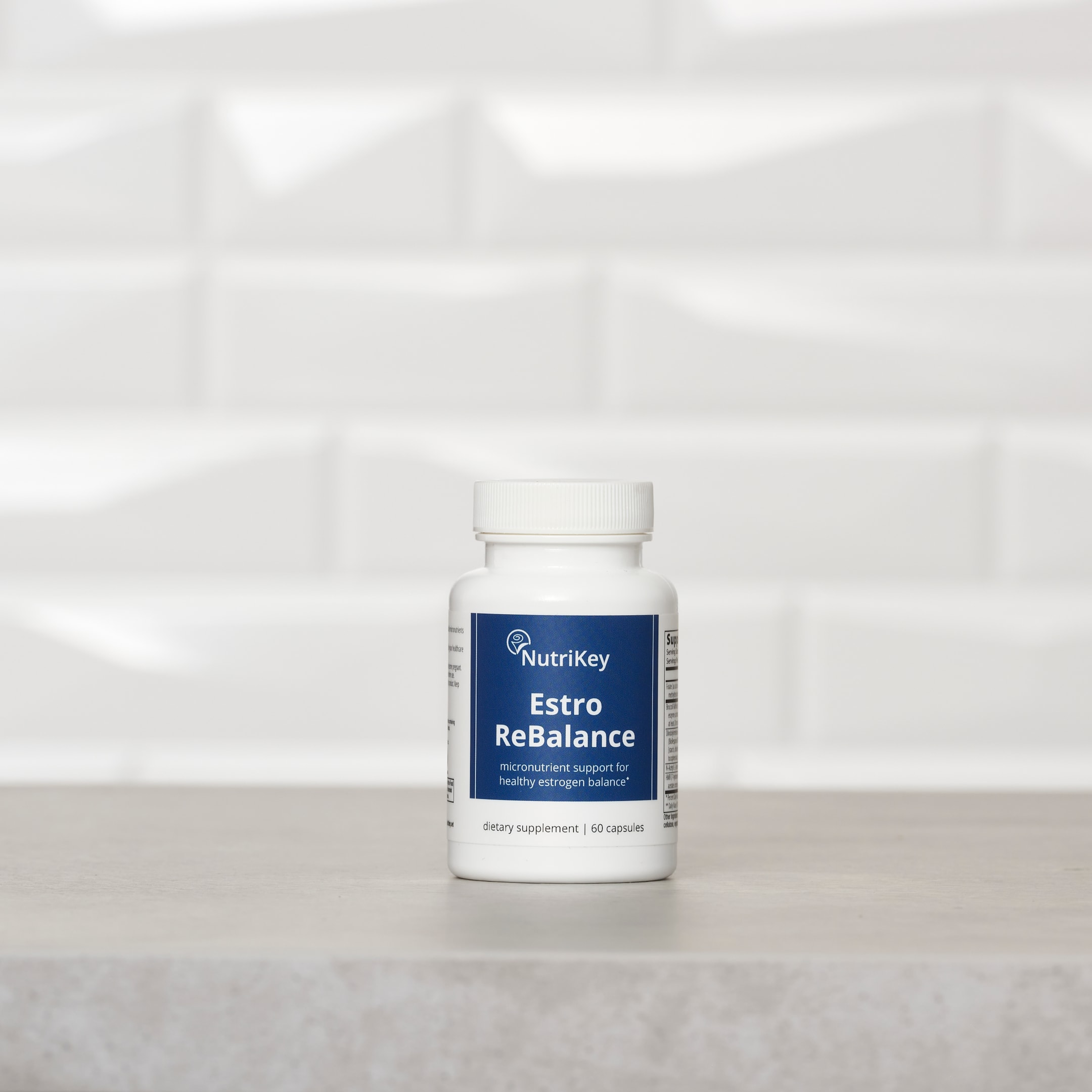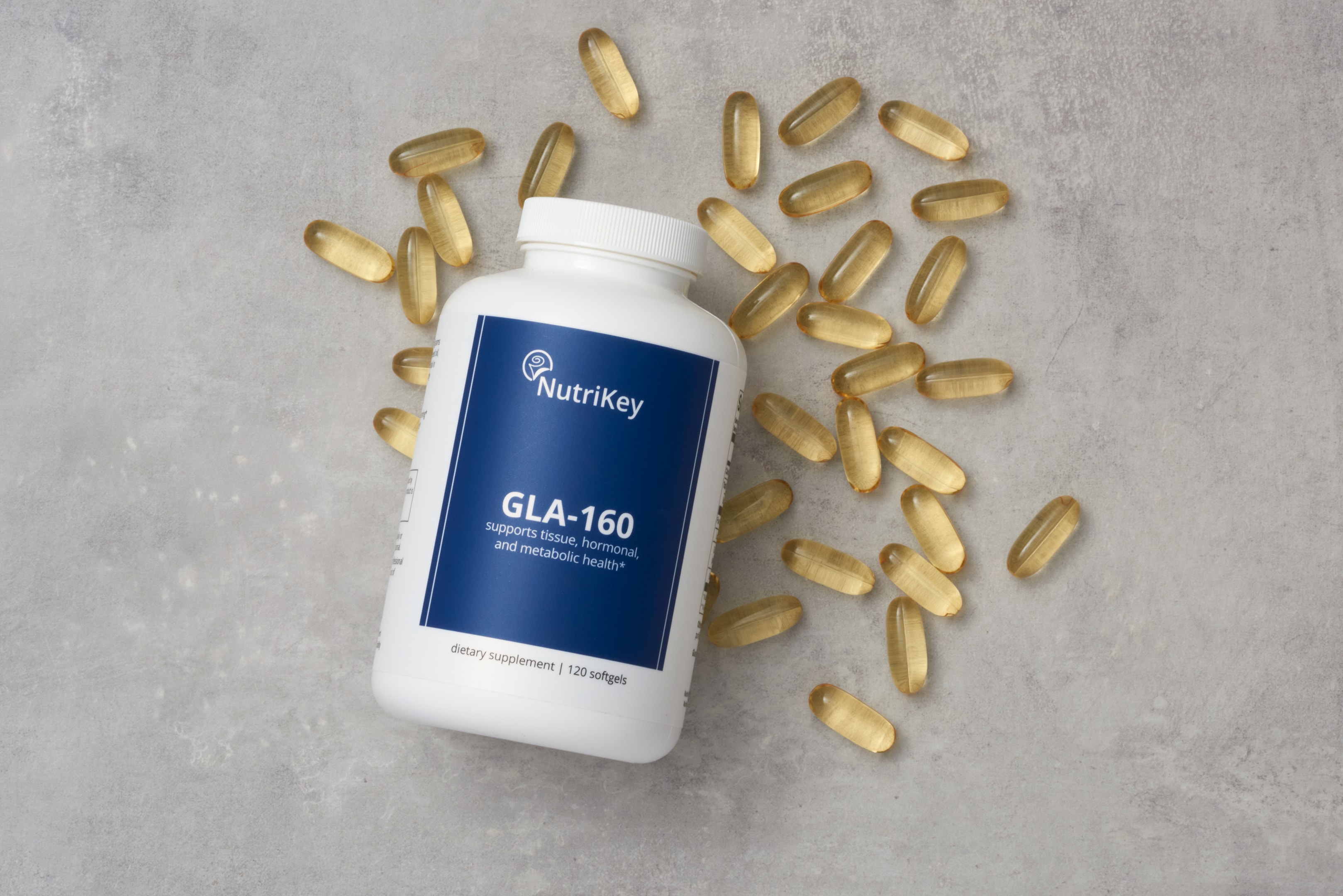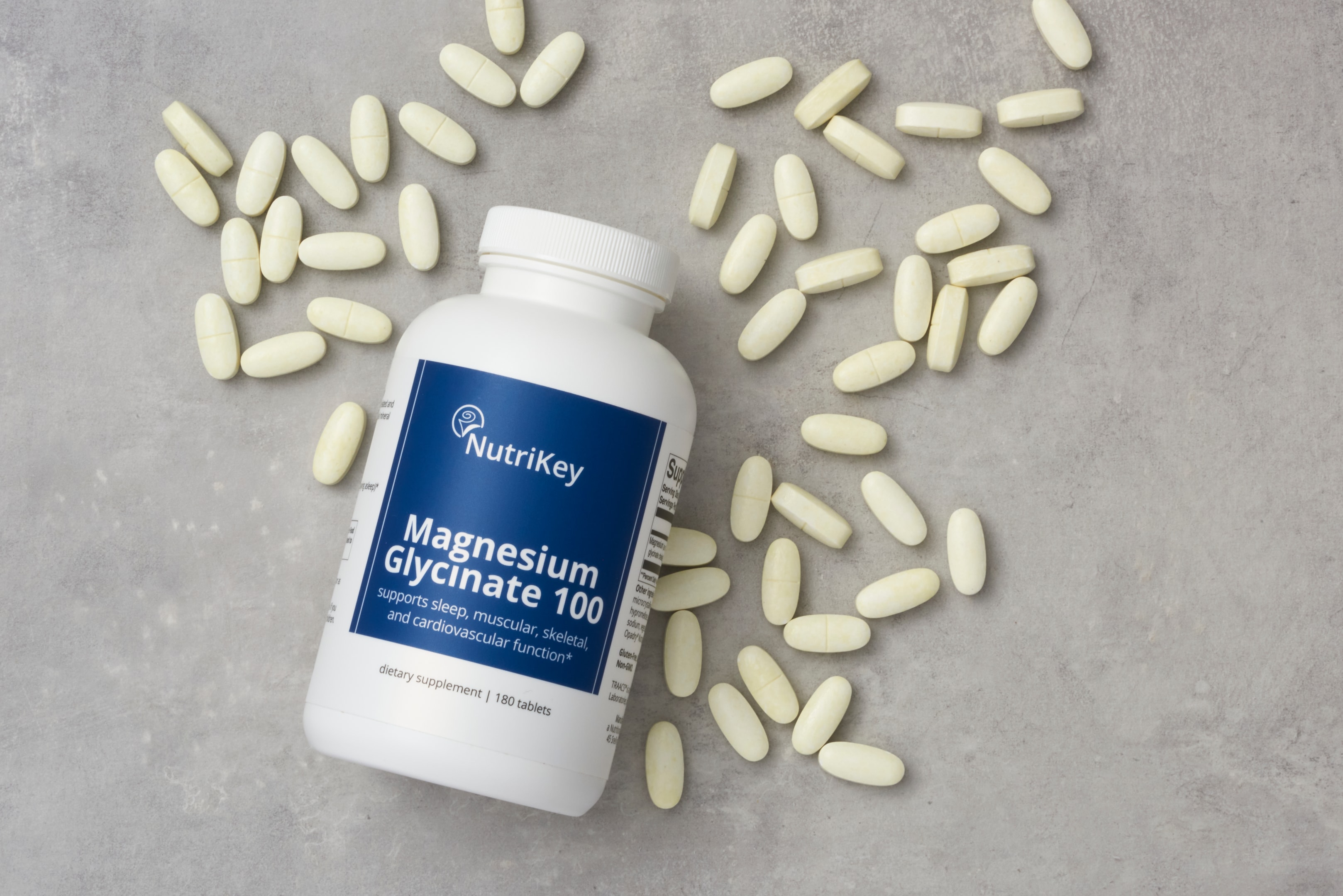
Our Top Recommended Menopause Supplements
By Nutritional Weight and Wellness Staff
April 14, 2025
Hot flashes, restless sleep, mood swings, weight gain, brain fog… sound familiar? Menopause symptoms can sneak up on you and quickly make you feel like a stranger in your own body. If you’re feeling off, you’re not alone—and you’re not out of options. Along with a real-food approach (always our foundation!), certain targeted supplements can make a big difference in how you feel day to day.

If you’re looking for relief from frustrating menopause symptoms and want a deeper understanding of what’s really going on in your body, we created something just for you. Our self-paced Menopause Solutions online class dives into the why behind your symptoms and gives you practical, real-life tools—like what to eat and which supplements to consider—that can actually make a difference.
To get you started, here are five supplements that we regularly recommend to clients—and often use ourselves—to help ease menopause symptoms and support your body through this hormonal transition.

1. Estro Rebalance
Estro Rebalance is a powerful supplement made to support your liver—the organ that clears out excess estrogen and toxins. Because here’s the thing: estrogen builds up not just from your body, but also from food, personal care products, plastics, and stress. And when your liver gets overwhelmed, it needs backup.
We’ve seen clients use Estro Rebalance and notice:
-
Fewer migraines (especially those tied to the menstrual cycle)
-
Relief from night sweats
-
Better sleep
-
Easier weight loss
One woman even shared that after doubling her Estro Rebalance (as her nutritionist recommended), she got back three good days a month—days previously lost to migraines and fatigue. Another client going through surgical menopause credited Estro Rebalance with helping her finally sleep through the night and drop 20 pounds.
Sometimes your liver just needs a little extra support. This supplement provides that—alongside a real food plan, of course.
2. ProGest Cream
When women stop ovulating (hello, perimenopause and menopause), they stop making enough progesterone. And without progesterone, estrogen can dominate the scene. That’s when anxiety, poor sleep, irritability, and low libido start showing up.
ProGest Cream is a natural, gentle progesterone cream made from wild yam. Just a quarter teaspoon applied to thin-skinned areas (like wrists or neck) can help you feel calmer and more balanced in a matter of minutes.
We love how simple and effective it is for:
-
Helps promote restful sleep (especially when used before bed)
-
Supports mood and emotional balance
-
Reduces anxiety and that “wired but tired” feeling
-
Brings progesterone levels up to help balance out high estrogen
Several of our staff personally use it—and notice the difference. So do our clients.

3. GLA-160
If your hormones feel like they’re on a rollercoaster—hello hot flashes, mood swings, or dry skin—there’s one supplement we often recommend: GLA-160. GLA stands for gamma linoleic acid, a active, ready-to-use form of omega-6 fat your body needs but can’t make on its own. That’s why we call it “essential.”
GLA has a special role in:
-
Reducing inflammation
-
Nourishing skin
-
(here’s the best part) Helping balance hormones.
-
Support the production of prostaglandins (tiny chemical messengers that help regulate things like menstruation and inflammation). That’s why it’s been shown to help smooth out PMS symptoms and even reduce hot flashes during perimenopause and menopause.
A lack of GLA can actually make your body more sensitive to prolactin—a hormone that ramps up before your period and can make PMS worse. So if you feel extra cranky, bloated, or sore right before your cycle, a GLA deficiency might be part of the picture.
One of our clients said, “GLA completely got rid of my hot flashes.” And she’s not alone—research backs this up, showing GLA can reduce both the severity and frequency of hot flashes with as little as 500–1,000 mg per day (just 1 softgel of GLA-160). Some women need more—especially if they’re dealing with vaginal dryness or dry skin, hair, and nails.
GLA results take time:
Most studies use GLA for 8+ weeks, and we usually recommend giving it 3–4 months of consistent use to see the full benefit. Fat-based supplements like GLA work gradually, but the results are absolutely worth it.
If you’ve been feeling off, inflamed, or out of balance—GLA might be the gentle nudge your hormones need. And of course, if you’d like help figuring out your ideal dose or pairing it with a real food plan, our team of licensed nutritionists is here for you.

4. Magnesium Glycinate
If you’re tossing and turning at night, waking up at 3 a.m., or feeling a little more tense than usual—magnesium might just be your new best friend.
Specifically, Magnesium Glycinate.
This form of magnesium is especially calming because it's bound to glycine, an amino acid that promotes relaxation and helps quiet a racing mind. It’s the form we often reach for when working with women in perimenopause or menopause who are dealing with sleep struggles, anxiety, or tight, achy muscles.
Magnesium is known as the “relaxation mineral” for good reason. It helps:
-
Relax your muscles so you can physically unwind
-
Support the production of calming brain chemicals (like GABA)
-
Reduce feelings of anxiety and irritability
-
Improve sleep quality and help you stay asleep through the night
One of the most common dosage recommendations we make? Start with 400mg of Magnesium Glycinate at bedtime. It’s simple, gentle, and doesn’t leave you feeling groggy the next morning—just well-rested and a little more like yourself.
And here’s something many women don’t realize: low magnesium is incredibly common—especially during the hormone shifts of menopause. Your body burns through magnesium faster when you’re under stress (and let’s be real, who isn’t?), and if you’re not getting enough from food or supplements, the symptoms can start to stack up: poor sleep, tight muscles, anxious thoughts, even headaches.
As always, consistency is key. Give it a few weeks of nightly use and notice how your sleep, mood, and overall stress levels start to shift.
5. Creatine
When most people hear "creatine," they think of bodybuilders and gym bros. But—creatine isn’t just for guys in the weight room. In fact, it can be especially helpful for women going through menopause.
As estrogen declines during this stage of life, we naturally lose muscle mass, bone strength, and even some brain sharpness. Creatine steps in as a supportive nutrient for all three.
Here’s what creatine can help with:
-
Muscle strength and maintenance: Estrogen helps keep muscle mass on your body, so when levels drop, building (and holding onto) muscle becomes harder. Creatine helps improve strength, power, and recovery—making your workouts more effective and your muscles more resilient.
-
Brain energy and mental clarity: Your brain uses creatine to fuel energy-hungry tasks like thinking, memory, and focus. Some research suggests that creatine may help with brain fog, mood, and even symptoms of depression—something many women report during menopause.
-
Hormone-related fatigue: Feeling wiped out for no clear reason? Creatine helps replenish ATP, your body’s energy currency. It’s like a little internal battery booster when your hormones (and energy levels) are all over the place.
We usually recommend 3 to 5 grams of creatine monohydrate daily, taken consistently. It’s tasteless, mixes easily into water or smoothies, and can be a low-effort but high-reward addition to your routine.
For more information on menopause, check out these resources:
- Learn: Menopause Solutions Online Class
-
Listen: Menopause Relief
- Inspiration: “So far, I’ve lost 27 pounds* and several inches. I feel so much better in my clothes. My hot flashes happen now only once or twice per day, which is an amazing improvement!” – Elaine’s story
Resources
https://pubmed.ncbi.nlm.nih.gov/30401547/
https://www.ncbi.nlm.nih.gov/pmc/articles/PMC6718646/








